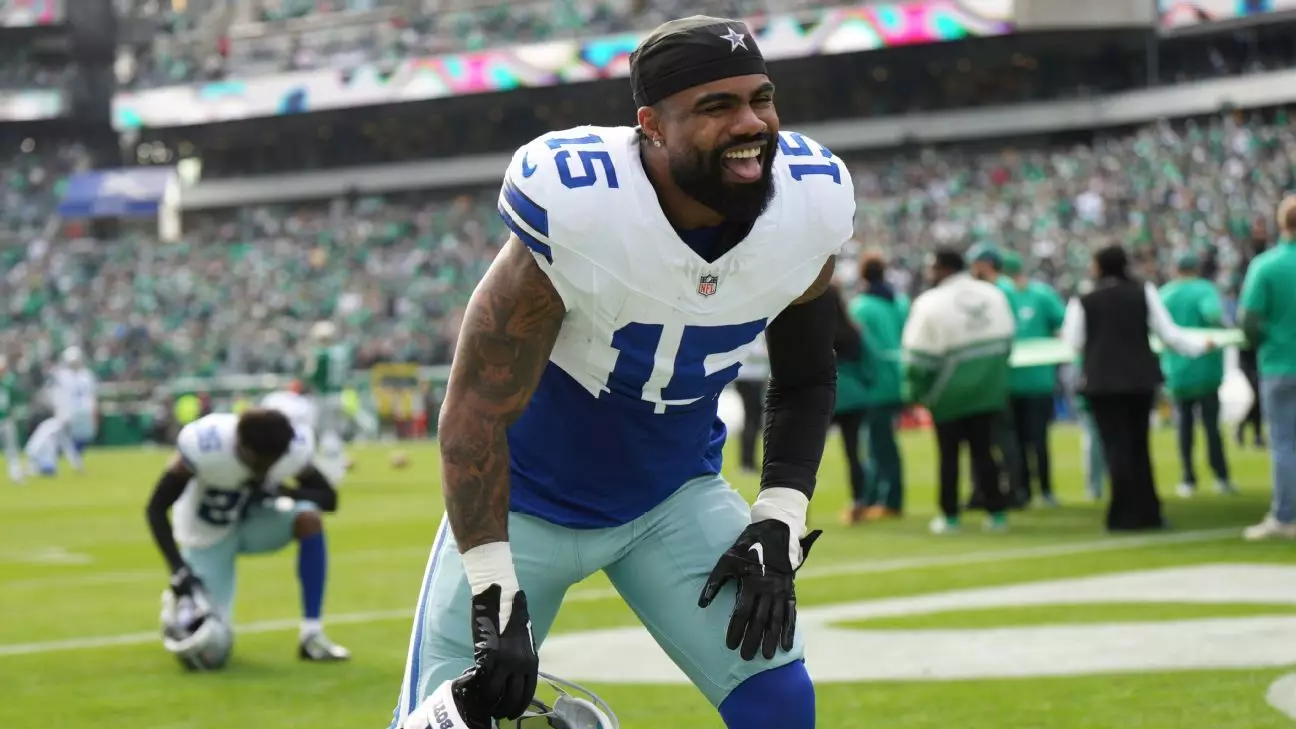In a move that reflects both the shifting tides of professional football and the personal journeys of its athletes, the Dallas Cowboys have officially parted ways with Ezekiel Elliott. This decision, announced recently, marks a significant moment in the history of the franchise and highlights the complexities of player management in the NFL. Elliott, who previously ranked as the No. 3 rushing leader in Cowboys history, finds himself once again on the trading block; a stark reminder of the volatility and uncertainty that defines a career in professional sports.
The Cowboys previously released Elliott after the 2022 season, citing salary cap complications. For a player of his caliber, the decision to release him again after just one season with the New England Patriots signals more than a financial strategy—it underscores the organization’s shifting priorities as they pivot towards what they perceive as a more competitive roster. Jerry Jones, the team’s owner and general manager, voiced a sentiment of respect and gratitude toward Elliott, noting that his contributions to the Cowboys will have a lasting legacy in the franchise’s history. However, such reverence can feel hollow for players contending with the harsh realities of professional contracts and roster decisions, especially as teams seek to maximize their potential for playoffs.
Elliott echoes the mixed sentiments of hope and uncertainty that many athletes grapple with following such releases. His agent, Rocky Arceneaux, highlighted that Elliott is eager about the future possibilities that lie ahead, emphasizing that he has plenty of football still to play. However, as Elliott navigates this transitional phase, the larger questions linger: What will his next move be, and how will it shape the narrative of his career?
A deep dive into Elliott’s performance stats during his final season with the Cowboys reveals a concerning decline. He managed only 74 carries, yielding 226 rushing yards and three touchdowns—a far cry from the prodigious numbers he posted earlier in his career. Following his impressive rookie season in 2016, when he led the league in rushing and set records that stood to this day, the expectation for Elliott was set monumental. Yet, the data paints a sobering picture of regression; since his peak in 2020, his yardage has consistently dwindled. The implications of this drop in form raise essential inquiries: Is Elliott simply a victim of a system that has evolved past his skill set, or are injuries and age catching up to him?
The Cowboys’ decision to engage in a roster overhaul could also be indicative of a broader commitment to resilience and adaptation, particularly as young talents like Rico Dowdle have emerged. Dowdle’s rise as the lead back, coupled with Elliott’s diminishing returns in performance, naturally shifted the team’s strategic landscape. While Elliott was indeed a centerpiece of the Cowboys in previous years, this shift signals a forward-thinking mentality that emphasizes a fresh roster and emerging talent.
No narrative about Elliott would be complete without acknowledging his undeniable impact on and off the field. With 8,262 rushing yards over his seven seasons with the Cowboys, he has conclusively made his mark. He also set dazzling rookie records that will likely stand the test of time. The impending question, however, remains whether this legacy can withstand his decline in performance and subsequent release. As Elliott faces the possibility of taking the field with another team, he holds the power to redefine his story.
As Elliott eyes potential engagement with a playoff-bound team, his path could reveal much about the transitional struggles of veterans in the NFL. The intersection of talent, timing, and circumstance often defines a player’s trajectory, and for Elliott, the next chapter will either reinforce his legacy or further complicate his narrative in a league that rarely offers second chances.
Ezekiel Elliott’s departure from the Cowboys signals not just the end of an era, but also the beginning of a decisive moment in his career. Whether he successfully navigates this challenging juncture will depend on both his resilience as a player and the opportunities that lie ahead. As for Cowboys fans, they can only hope that their franchise continues to evolve, while cherishing the memories of a player who once stood as a beacon of hope and talent in Dallas.


Leave a Reply